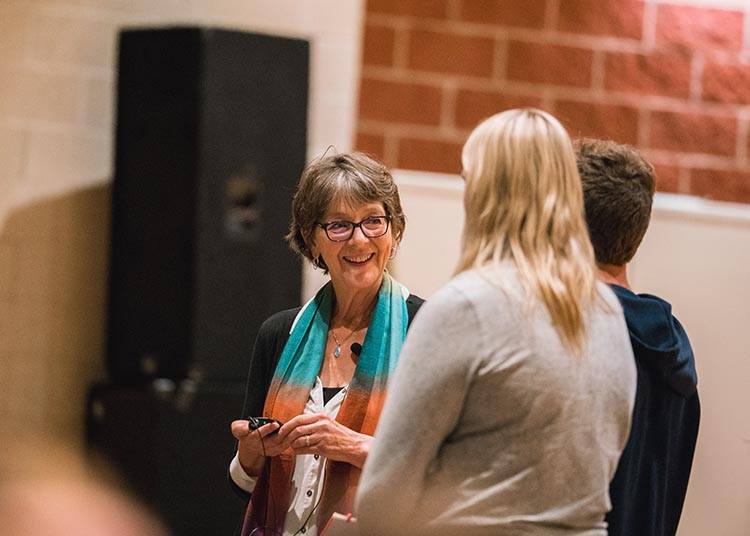McEntyre Presents 2017 Freshman Lecture


While controversies have always been part of public discourse, the situation has become even more fraught in recent years, according to Marilyn McEntyre, a writer and professor of medical humanities at the University of California, Berkeley-University of California, San Francisco Joint Medical Program, who presented the 2017 Freshman Lecture.
“Over the past several decades, public conversation has been riddled with new difficulties,” McEntyre told the students, faculty, and community members who gathered in Ozinga Chapel Auditorium for this year’s lecture, which was titled “Preparing for Public Conversation.” “The sheer volume of information available now means that we have to sift through more data than ever before. There is a lot of noise competing with the ‘still, small voice’ that Elijah heard,” said McEntyre, whose books include “Caring for Words in a Culture of Lies.”
According to McEntyre, too many people are comfortable with the use of alternative facts today. “We don’t push back nearly enough. We are stewards of words, just as we are with other resources,” she said.
She suggested several stewardship strategies for engaging in public conversation:
- Love words
- Tell the truth
- Don’t tolerate lies
- Read well
- Share stories
- Love the long sentence
- Practice poetry
- Play
- Ask for definitions
- Unmask euphemisms
- Tell the truth slant
- Find facts and check them
- Honor the complexities
- Claim your logic
- Find an alternative to “winning”
- Remember that words are acts, and make them acts of love
Following the lecture, the audience participated in a question and answer session and workshops.
Trinity’s annual Freshman Lecture enriches the core experience for freshman students by engaging them in a challenging but enjoyable learning opportunity outside the classroom setting. Though organized by the English Department and contextualized in the Composition or Introduction to Literature classroom, the Freshman Lecture aims to be interdisciplinary and perspectival. It offers listeners new avenues of reflection on such topics as cultural engagement, learning, communication, and personhood. Typically, the lectures draw interested senior students and faculty members as well.

